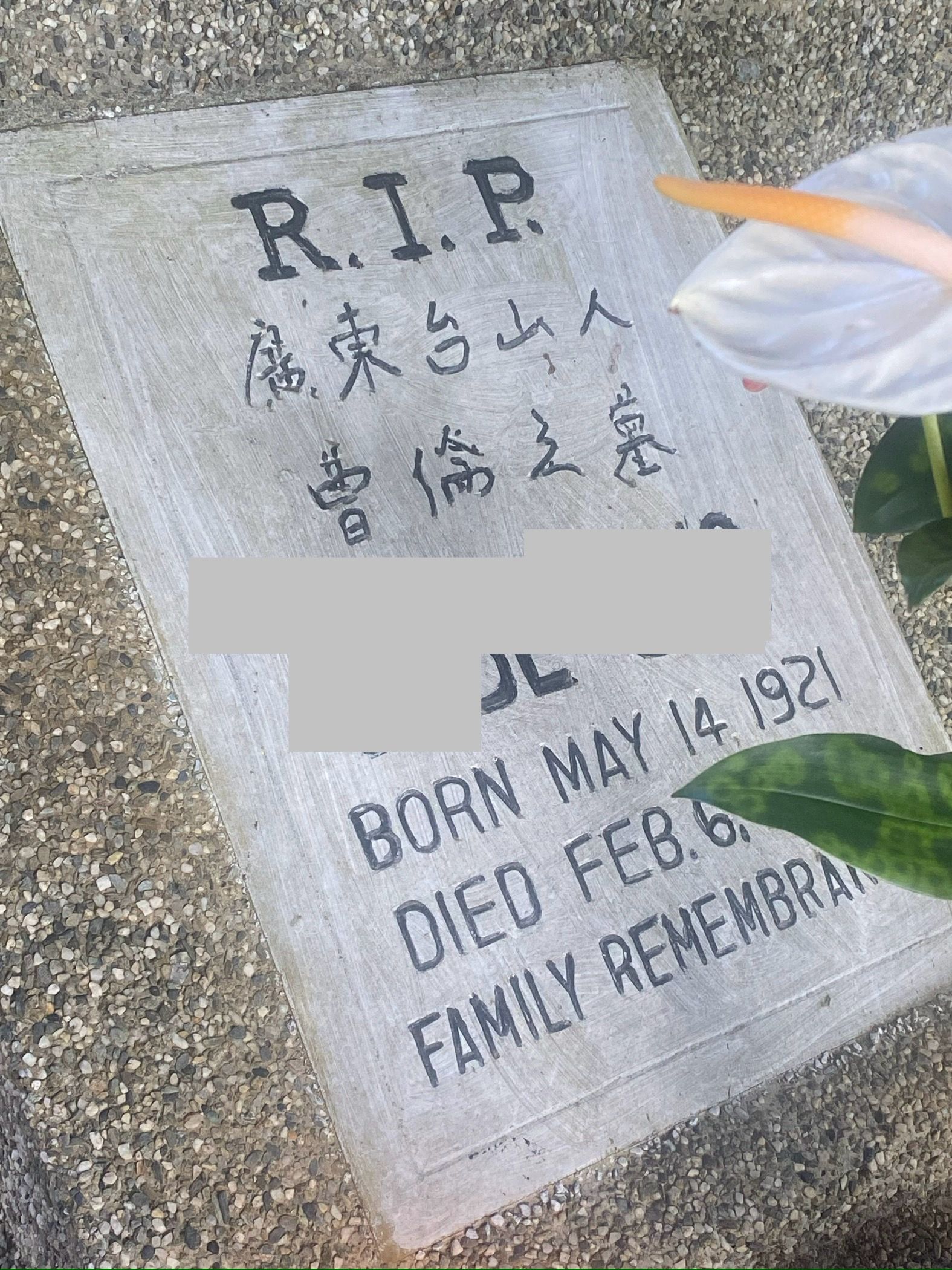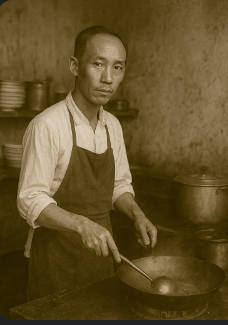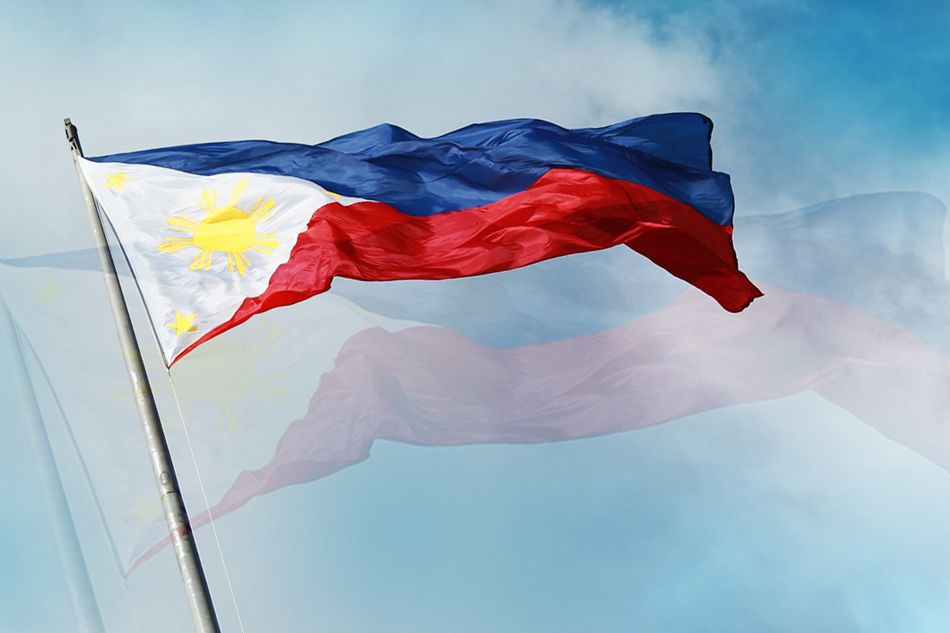November 1 -- All Saints' Day
In the Philippines, this is a holiday meant for people to go and visit loved ones particularly those who passed away. I work in the Metro; this is also one of the main draws for me to go back to my hometown where my family lives.
For the longest time, we have been always visiting my maternal grandfather in a public cemetery. We really didn't know much about him except that he was of pure Chinese descent. My mother was still around in elementary when he passed away. He also worked mostly in Manila so there was not much Chinese cultural upbringing in our family since then.

In the above inscription, you can see some Chinese characters which had been there ever since but no one bothered to understand. Thanks to today's technology, images can be fed for interpretation by AI (LLM), and that's what I just did.
While today's Artificial Intelligence is not yet that perfect, perhaps some native Chinese can help verify if my understanding is correct. :)
First line states:
廣東台山人
Literal: “A person from Taishan, Guangdong.” Meaning: Indicates that the deceased was originally from Taishan (Toisan), Guangdong Province in China — a common origin of many early Chinese migrants to the Philippines.
This makes sense, and is actually a revelation. It's a written proof of where my grandfather came from!
曾儉之墓
Literal: “The grave of Zēng Jiǎn.” 曾 (Zēng) is a Chinese family surname. 儉 (Jiǎn) would be the given name. 之墓 means “the grave of.”
I've covered my grandfather's locally registered name in the picture. Now, I know what was his Chinese name! It could have different pronunciations though(?). The family surname used is actually 'Cho'. So from Zeng to Cho?
Growing up, I've always wondered about my Chinese ancestry. Filipino-Chinese families are known to be in tight-knit communities, hardworking and eventually successful business people. So I wondered, why was ours kind of hidden? Our family did not adopt a Chinese surname and we didn't have a community.
Trying to connect all what I've known with this recent information and some quick research, I think I understand it better now. Majority of the Chinese-Filipino families in the Philippines came from the Fujian province of China (Hokkienese/Fujianese). My lineage comes more from Guangdong province, specifically Taishan.
My grandfather most likely migrated to the Philippines post-war as my mom (eldest) was born in 1956. Taishan had a long tradition of sending people overseas, but most of them went to the US/Canada/Australia. Post-war Chinese immigration to the Philippines was limited and regulated.
Chinos Macaos
I always get confused why some people refer to us as "Macao", when I could not trace our roots to be in Macau. One guess I have is that my grandfather probably transited through Macau. Another one I've just read was that during the Spanish period, there is also a term "chinos macaos" or "chinos macanista" who were renowned cooks and carpenters in Manila. Since most Cantonese/Taishan worked in the service industry including my grandfather (I've heard he worked in a hotel/restaurant); hence, the general term "Macao" stuck. Unfortunately, there is also a term "Lutong Macao", but means something rigged. So my guess here is that Chinos Macaos were really known within the food and service industry.

My grandmother who was Chinese mestiza herself (this is another story), got married to my grandfather at a very early age (est. 16 yrs old). It was an arranged marriage, based on need I guess from both sides. My mother and siblings did not adopt the Chinese name. It was probably due to discrimination against Chinese during that time, where they are even barred from owning lands. It's a bit different now where having a Chinese name makes one feel like royalty. Filipino-Chinese are often regarded as great in businesses, and a lot have physical features that are of beauty standards in the Philippines (e.g. fair-skinned, chinito/chinita, etc).
Filipino
I'm defined to be a 3rd generation Filipino-Chinese, as I've been born here in the Philippines and I associate myself more as a Filipino. It is great to know and understand one's heritage, but in terms of culture and development, it's definitely 100% Filipino for me. I'm pretty sure most Filipino-Chinese who grew up here feel the same.
While there is general favorable acceptance of Filipino-Chinese now compared to before, concerns nowadays are more on Communist China influences and its Global dominance.
There was an influx of Chinese mainlanders in the Philippines when the POGOs (Philippine Offshore Gaming Operators) were allowed. Some of them even penetrated politics (i.e. Alice Guo).
There are also territorial disputes like what China claims as the Nine-dash line in the South China Sea which overlaps and limits economic zones that are actually nearer to other countries.
China's dominance, while inevitable, looks scary at this moment. I just really hope every country thinks more about how to become a better global citizen.

Anyway, this just started as a simple reminiscence moving towards Filipino-Chinese history. Looking forward to a better future for all of us! :)